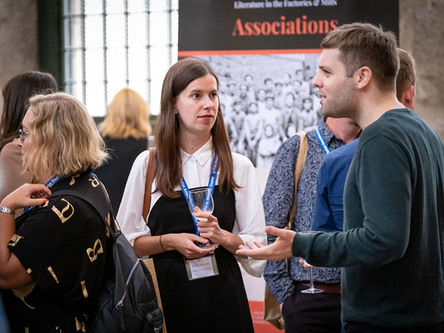The business events industry has undergone significant change over the past few years, not least in its drive to become more environmentally sustainable.
While the pandemic has brought the benefits of virtual events and their lower carbon footprint to the fore, there’s still a significant demand and purpose for in-person and hybrid events. Which raises the question – just how do you square the business case for physical events with the impact on the environment?
The answer, says Dundee & Angus Convention Bureau’s Karen Tocher, is that we all need to work together. To create a genuinely sustainable and innovative event sector, everyone must participate. As succinctly put by Lyndon B Johnstone, “There are no problems we cannot solve together … and very few we can solve by ourselves.”
In order to solve challenges, people need to come together.
Partnership and participation
Widespread recognition of the importance of sustainability within the sector has been accelerated by recent events, not least by the impact of Covid-19.
In the latest Shape of Events survey, 85% of respondents flagged climate change as the issue that is now central to the sector’s future. But ours is also an industry that needs to balance economic and environmental sustainability if it’s to not only survive but thrive. And this means working in synergy with client expectations, fostering collaboration, and striving to make sustainable practices central rather than optional aspects of the whole event planning and delivery experience.
In November 2021, at the COP 2026 Climate Change Conference in Glasgow, global industry leaders put forward a collective net zero carbon events pledge.
With a target of achieving net zero by 2050, this pledge is seen as the starting point for the work that still needs to be done within the business events industry. And key to paving the way to a sustainable future for the sector is the pledge’s commitment to ‘collaborate with partners, suppliers, and customers to drive change across the value chain.’
From the international stage to the national, regional, and local, this pledge for collaboration underpins the way forward for business events. And it enables planners, destinations, and venues to positively embrace both the challenges and opportunities of delivering sustainable events.
However, for these principles to become naturalised as ‘business as usual’ it requires consistent and coordinated actions from everyone involved, and not just the decision makers or marketeers. In short, a sustainable events industry relies on the collaboration of all its stakeholders.
Making sustainability work for your event
Awareness of the issues when it comes to organising, coordinating, and delivering a sustainable event is the starting point for any industry professional. But to deliver a successful event, we need to come out of our ‘comfort zone’ and engage with all stakeholders to ensure those sustainability principles are authentically delivered across the board.
And this can often mean working from the bottom up and using partnerships with suppliers, venues, and communities to drive forward an event’s standard for sustainability.
For example, choosing the right supply chain where environmental practices are established and transparent ensures authenticity in your event planning. Opting for venues with innovation for green technologies provides the ideal platform for a sustainable event experience. Then there’s the opportunity to work with green energy suppliers, local producers to reduce food miles, engaging with contractors and catering suppliers who have clear packaging policies to reduce waste and exploring options for decarbonisation programmes that can also be used to engage and benefit local communities.
Destinations can also use sustainability policies or pledges to make their region more attractive as well as easier for event organisers to meet their clients’ brief. Low carbon travel systems, accessible venues as well as services, hospitality and attractions with existing sustainable policies and practices all add up to an attractive business proposition.
By consciously working with your suppliers, contractors, facilitators, venues, and partners, as well as corporate stakeholders, you can naturalise and embed sustainability practices into all your events. And that applies to virtual and hybrid as well as the physical event sphere.
Everyone benefits
Devising, organising, and delivering a sustainable event has the potential to benefit everyone. As well as being environmentally responsible, adopting meaningful practices when it comes to delivering sustainable conferences and events also makes sound business sense for you and your stakeholders. And it will increasingly align with the corporate culture of your clients as well as the delegate experience, where expectations of sustainability are becoming the norm.
And, for the actual event destination, the benefits of sustainable collaboration can also be widespread. Not only does it reduce a venue’s carbon footprint, and help to create a more beneficial working environment, but it can also bring positive social and economic impacts to the area and its communities. Raised profile, diversified offering as a destination, ‘green tourism’, associated economic spend, issue awareness, innovation, and economic as well as environmental opportunities, it is not just the planet that stands to benefit.
Which is why collaboration and 360 stakeholder participation to deliver sustainable events is the ultimate industry ‘win/win.’
Ends







